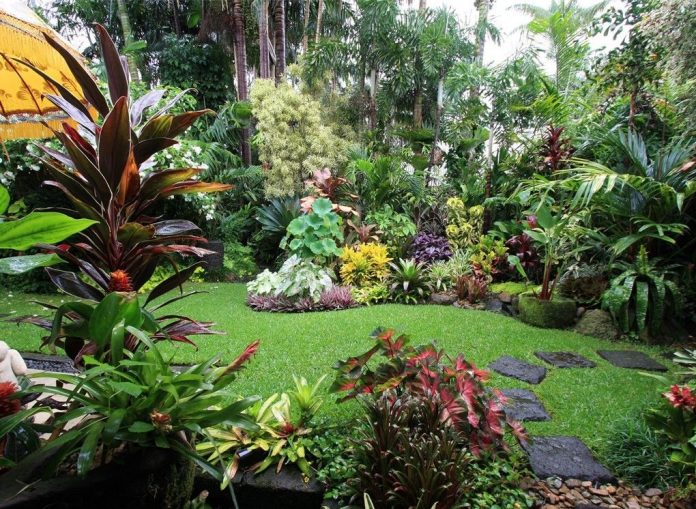By Cdr. Bud Slabbaert
In the Caribbean, too little attention is given to the visitor segment of high-end clientele that use private jets to come to a destination. Better not consider them tourists or treat them as tourists. Every passenger who arrives on a private jet is a potential investor in the region…, provided that the destination will meet their standards and criteria, and that they eventually fall in love with the island.
They will make the preferred destination part of their lifestyle and invest in that element of their way of life. They are repeat visitors and usually attract other personalities of their social circles to be their guest, which has a multiplying effect. They appreciate authenticity, discretion, serenity, and locations where beautification and cleanness are taken seriously. Mediocrity and fakeness are unacceptable. Yet, they love some simplicity and a laid-back atmosphere in a luxury setting. And they’re trying to find what ailing living in their country back home is.
Tourism authorities who say “hmm, yes, we also want those ALSO”, are most likely not getting them. This segment does not fit in with cruise ship tourism or forms of over-tourism. This segment requires a different approach and strategy.
In the Caribbean there is a relatively small number of destinations that qualify for pursuing the development of this segment in a full out effort. Those are the ones where serious high-net-worth individuals should be able to explore the potential of a return of investment that may be different than you think; it is satisfaction and joy rather than interest rates on their capital. They have enough that already; they are looking for what is missing, a paradise resembling environment.
A safe living environment with an insignificant to zero crime rate is important to them. A stable reliable island government to deal with. Not to forget a quality infrastructure. They’re not looking for a highway to speed on, but they definitely don’t appreciate potholes in the roads. Yet, they love a somewhat rural atmosphere. They love a natural landscape that is beautified by orange blossoming flamboyant trees and pink flowering bougainvillea bushes.
Some islands that have the potential to attract this clientele, should consider joining efforts and form a task force or action group that focuses on this segment and come up with refreshing and useful advice and suggestions. No, not a ‘study group’. I hate that word ‘study’. One doesn’t need a heap of accumulated theory collected in a report that defends itself from being read because of its thickness. The last thing needed is a committee that wastes hours and keeps minutes. The group should definitely not be an assembled choir whose members can only sing the shanties of their own ship.
The taskforce should be an independent and impartial group and the members should consist of thinkers and movers-and-shakers with brains that are as clear as Bohemian Crystal glass. Persons who are not afraid to express themselves in straightforward wording which may be so hot that it singes the eyebrows of the listeners.
Why would you want this clientele anyway and what is the sense of this so-called wealth tourism or high-end tourism? Finally, we are getting to the point! This is the clientele that spends approximately ten times as much per person than the average mass-tourism visitor. US$ 800 plus for a hotel room night is not uncommon. US$ 30,000 dollar plus for a week’s villa rent is not unusual. Got it?
It is not just the positive economic impact that characterizes this segment. Since this clientele does not accept mediocracy, the island is more or less compelled to upgrade its infrastructure, facilities, and services which may contribute to an improved overall standard and quality of life of the island’s community. This clientele is also willing to pay higher wages or charges for services. Just think about the saying ‘success breeds success’. A word of caution though. The improvements must not become a financial burden for the ‘native’ members of the island community. Greed of developers must not hurt the common islander.
There are a few islands where the development of this segment could be successful. However, it is necessary to prepare a strategy first. This is not a matter of opening a can of magic to have a fast food dinner on the table. This clientele does not visit vacation expos. Advertising doesn’t do the trick. Articles by reputable journalists in selected glossy lifestyle magazines may be one way to attract the attention. But before anything will be published, there needs be substance to base the article on.
It is wise for these few islands to form a task force as mentioned before. But why? Why a joined effort when these islands will be competitors with the same objectives? There is no such a thing as competition. The clientele will determine what it likes and what suits it best. Since every island is different and often unique, there are choices. First attract this clientele to the region, then offer the options, and the client will decide.
Not trying to do anything about finding new ways for improving the socio-economics of an island may be called complacency, I would categorize it as “The Continuing Art of Suffering in Silence”
About the author
Cdr. Bud Slabbaert is the Chairman and Coordinator of the Caribbean Aviation Meetup, an annual results and solution oriented conference for stakeholders of ‘airlift’ in the Caribbean which will be June 16-18 on St.Maarten. Mr. Slabbaert’s background is accentuated by aviation business development, strategic communication, and journalism.




















